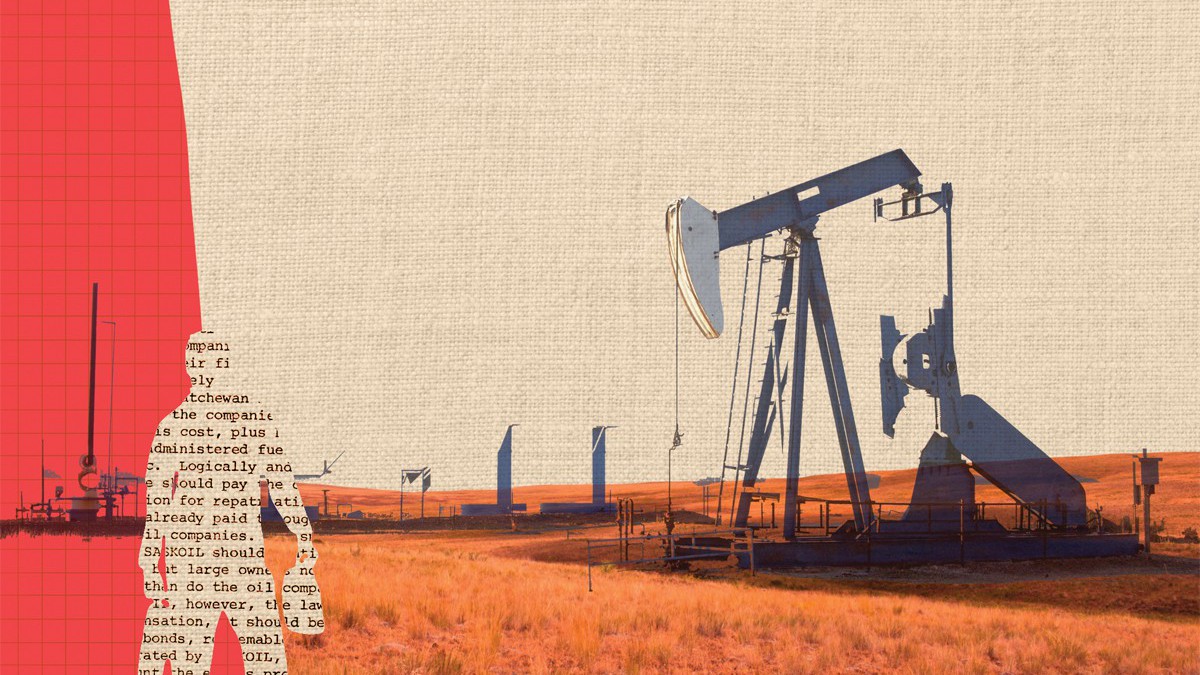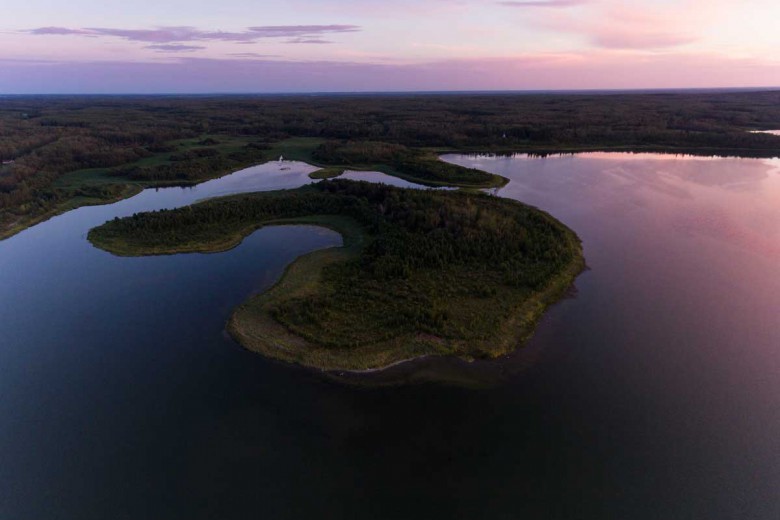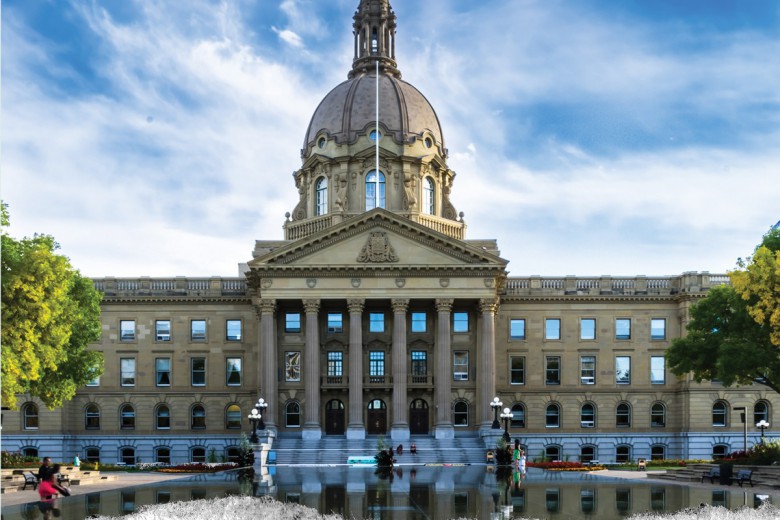“The Waffle is actively organizing public support behind a policy of complete public ownership of the provincial oil industry. We want the government to create a crown corporation – SASKOIL – as a fully integrated company encompassing all aspects of the oil industry in Saskatchewan, from initial exploration through crude production and refining to retail distribution.”
—Introduction to SaskOil: It Can Be Done, distributed in Saskatchewan in 1972 by the provincial Waffle, the radical socialist wing of the New Democratic Party (NDP)
Fast-forward 46 years from the SaskOil: It Can Be Done pamphlet, and Saskatchewan’s multi-billion-dollar oil industry is firmly in private hands. Today, Saskatchewan is Canada’s second-largest oil producer and its highest per-capita emitter of greenhouse gases. Yet, the governing Saskatchewan Party opposes almost all action on climate change, including the federally mandated price on carbon. The province’s economy is dependent on resource-extractive industries that are prone to booms and busts and have devastating environmental and human impacts. While Indigenous nations entered into treaties with the Crown in order to share the land and resources in environmentally sustainable ways, Saskatchewan’s oil industry operates on agricultural land mostly cleared of Indigenous communities, and extracts profits for private benefit while externalizing the environmental harms of production. Saskatchewan governments have failed to engage in meaningful action on reconciliation and decolonization, and have refused to share the revenues from resource extraction with Indigenous communities.
Today, Saskatchewan is Canada’s second-largest oil producer and its highest per-capita emitter of greenhouse gases.
Enter SaskOil. Could Saskatchewan resurrect the idea of a Crown-owned oil company to tackle the twin crises of climate change and ongoing colonialism? Could it allow us to wind down the industry, get off oil, keep people employed, and repatriate land, resources, and decision-making to Indigenous peoples?
The Waffle takes on Big Oil
In the early 1970s, Allan Blakeney’s NDP was elected to a majority government in Saskatchewan. Tensions were running high within the political left across settler Canada: the Waffle faction of the NDP was giving the centrist party establishment a surprisingly close challenge in the 1971 federal leadership race.
“The Waffle movement led to a number of fissures within the party,” says Joe Roberts, a retired political science professor at the University of Regina and former activist in the Saskatchewan Waffle, “and since it was calling for the NDP to take a more aggressive position against capitalism, overtly differentiating itself from liberals and the accommodationist wing of the NDP, it was a major division.”
The year after the leadership race, in June 1972, the Waffle was expelled from the Ontario NDP, extinguishing much of the momentum the Waffle had gathered while putting forward unabashedly socialist policies.
Few outside the Prairies know it, but the Waffle persisted within the Saskatchewan NDP until the fall of 1973, when Waffle members themselves decided to leave the provincial NDP, seeing the party as a dead end for building a socialist party. Before leaving, Wafflers met directly with premier Blakeney while he was in power, and campaigned publicly to push their policy proposals.
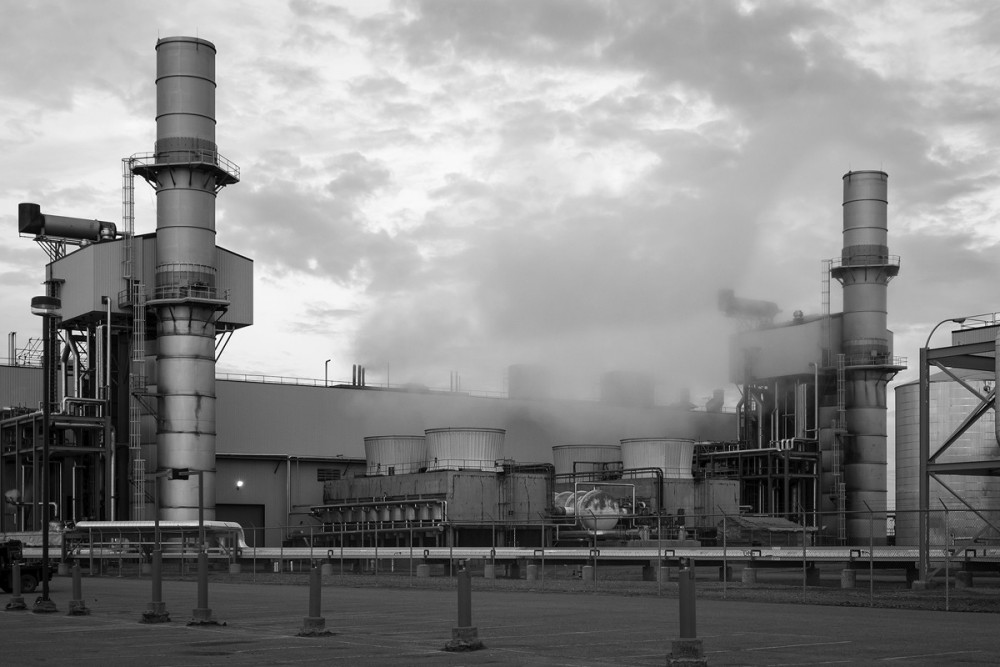
The group launched its SaskOil campaign in 1972, and in 1973 the Waffle’s efforts paid off – at least in part. That year, Blakeney’s NDP government passed legislation to create a provincial Crown corporation called the Saskatchewan Oil and Gas Corporation, or SaskOil. SaskOil was to compete with existing, mostly American-owned oil exploration and extraction companies in the province. The Crown corporation attracted skilled local workers, developed new oil fields, and returned considerable profits to provincial coffers. Though it did not fully take over the industry, SaskOil gave the province increased control over its own resource destiny.
A publicly owned oil company
Roberts recalls significant public support within and outside the NDP for the proposal to establish SaskOil in the 1970s. “There might have been conflicting currents,” he says, “but we were by no means swimming against the tide.” Internationally, Venezuela had nationalized natural gas in 1971 and was beginning the process to nationalize oil, and Norway had set up a publicly owned oil company, Statoil, which took control of its offshore oil in 1972.
According to Roberts, SaskOil “was an attempt to restore, within the CCF /NDP, that crusading socialism that it had once declared itself in favour of.” With the eruption of social movement activity led by youth in the late 1960s, “it seemed there was some possibility that the young and the old could get together on something that was contemporary but consistent with the history of the party.” As Roberts explains, the Waffle saw the creation of SaskOil as a “valid and progressive step” for a minor capitalist economy like Saskatchewan that was “being screwed by large corporations, one after another.”
Alongside NDP Waffle MLA John Richards, and supported by the National Farmers Union (NFU), Roberts travelled to communities across Saskatchewan making the economic and political case for SaskOil before its creation. Meanwhile, the Waffle’s publication, Next Year Country, published articles advocating for a Crown corporation for oil. Roberts and his Waffle colleagues also used NDP provincial conventions to present workshops and papers promoting the case for SaskOil.
The Waffle saw the creation of SaskOil as a “valid and progressive step” for a minor capitalist economy like Saskatchewan that was “being screwed by large corporations, one after another.”
An opportunity to crystallize the need for domestic control of oil emerged in the immediate aftermath of the Organization of the Petroleum Exporting Countries’ (OPEC) oil embargo. Shortly after legislation to create SaskOil had been passed in the provincial legislature, Persian Gulf nations forced sudden and drastic increases to the price of oil. The price increases, which began in October 1973, would quadruple the price of oil by 1974, sending shock waves across the world. In Canada, this opened up new discussions about the need to increase domestic control over an oil industry dominated by large American players, and to secure energy for domestic consumption. In Saskatchewan, the NDP government leadership, and not just the Waffle, pointed out that while international oil companies were setting exorbitant world prices, the costs of producing oil locally had remained low.
By the end of 1973, the NDP government passed Bill 42, which allowed for a 100 per cent tax on the windfall profits of oil companies operating in the province. The bill also granted the province power to expropriate private mineral rights by buying out private oil holdings and transferring them to public hands. The lone Waffle representative in the Saskatchewan legislature, Richards, who by this time had left the NDP to sit as an independent socialist, voted against Bill 42, arguing that it accommodated capitalists and oil companies’ interests because it did not fully nationalize the industry as a whole, and it compensated capitalists for their lost mineral rights.
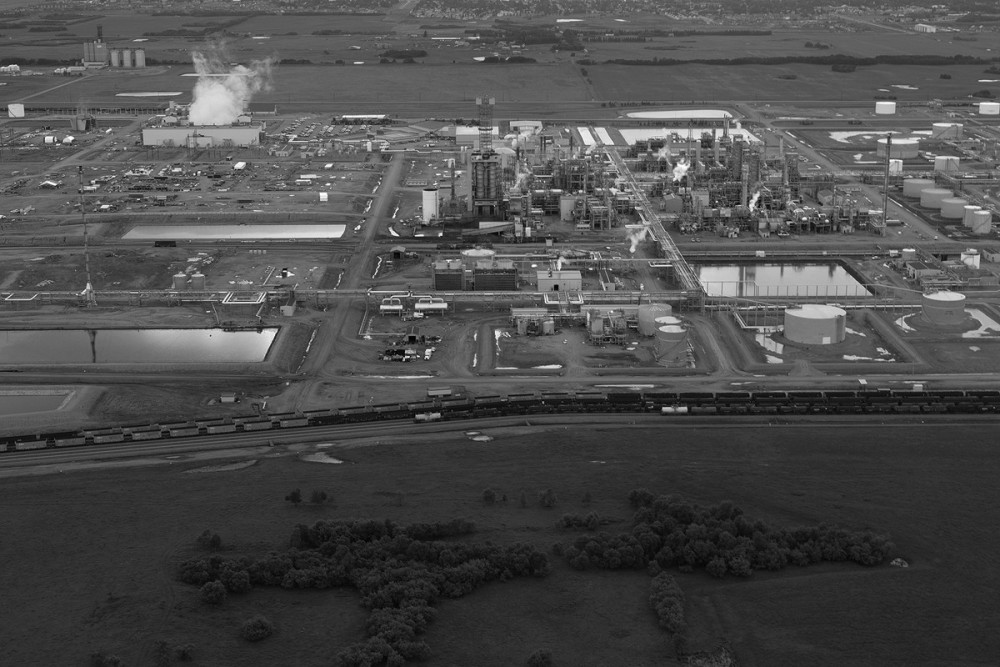
At the federal level in 1973, the NDP introduced a bill that passed in Pierre Elliott Trudeau’s minority Liberal Parliament and resulted in the creation of Petro-Canada in 1975, a publicly run oil company based in Calgary. Governments in Canada and beyond, leftist and centrist, saw the value in taking hold of parts or all of their domestic oil industries. Provincial governments in Canada responded to the OPEC price spike by increasing taxes on windfall profits and establishing Crown-owned oil infrastructure, while Venezuela nationalized the whole resource.
The government expropriation of the mineral rights of 24 companies, using Bill 42, provided SaskOil with the assets for a modest oil exploration program. By 1979, SaskOil had drilled 199 wells, purchased additional producing wells, and hired 121 people. By 1981, less than 10 years after its establishment, SaskOil had amassed $191 million in assets; it was also bringing in $60 million in gross revenues annually, and contributing $26 million in annual royalties to the government. Royalties were deposited in the Saskatchewan Heritage Fund, established by the Blakeney government in 1978, and used for development initiatives – including extractive industries such as uranium mining – and general government spending.
Provincial governments in Canada responded to the OPEC price spike by increasing taxes on windfall profits and establishing Crown-owned oil infrastructure, while Venezuela nationalized the whole resource.
Oil royalties thus helped to fund increasing extraction as well as important expansions to the welfare state, such as adding prescription drugs and chiropractic care to the medicare plan; the establishment of a dental health program for children; a public housing program; increased services for seniors, Indigenous people, and people with disabilities; a new agricultural land bank; and increases to the minimum wage.
Importantly, the Crown corporation also provided the government with insight into the industry, putting it in a better bargaining position when dealing with private corporations and when setting regulations and royalty rates. Between 1972 and 1982, the share of the excess oil and gas profits returning to the government of Saskatchewan rose from 13 to 65 per cent.
Darrell Shire, who worked at SaskOil in Regina as a reservoir engineer from 1979 to 1986, explains that SaskOil provided an opportunity for local university graduates of engineering, geology, and business to work in the province. Additionally, SaskOil’s presence tempered the influence of the private companies trying to drive down royalty rates: “Industry is always saying ‘capital is mobile, and if you don’t play ball, we’re leaving, and then your hospitals [and] your schools will shut down,’” says Shire. But with SaskOil present, if private investment left, Shire explains, the public sector could fill the gap and rake in the profits.
As a Crown corporation tasked with expanding the oil industry and bringing in revenue for the government, SaskOil was a success – notwithstanding the destruction to Indigenous lands that success entailed. But with the election of Premier Grant Devine and the Progressive Conservatives, the life of the Crown was cut short. In a spate of privatization measures, Devine began selling off shares of SaskOil, and the job was finished by NDP premier Roy Romanow in the 1990s in an effort to quickly eliminate a nagging budget deficit. The government’s direct involvement in the industry was over, as were the revenues flowing to the province from SaskOil.
Managing decline
There has never been a more urgent need to wrest power from fossil fuel companies. Their influence over Saskatchewan politics and economy is nothing short of a stranglehold. Most recently, the Saskatchewan Party government has vowed to protect the oil industry by fighting the federal carbon price, while the NDP opposition has waded into the feud between premiers Notley and Horgan in favour of pipelines. There seems to be no political space available to address the urgency of climate change, the devastation to Indigenous lands, and the need to transition the economy from fossil fuels toward a sustainable, clean energy future.
Fossil fuel companies’ influence over Saskatchewan politics and economy is nothing short of a stranglehold.
Private oil companies cannot be expected to work toward their own demise. A potentially promising strategy for such a managed decline of the fossil fuel industry is social ownership. Once in collective hands, a sector-wide plan could be drawn up that would allow for a reasonably paced transition that would invest profits from (declining) production into supports for worker retraining and environmental cleanup. Indeed, the liabilities associated with cleaning up and decommissioning inactive and orphaned wells is already significant: in the Tyee, Andrew Nikiforuk estimated the cost in Alberta at $82 billion. Cleaning up the oil industry’s mess will also produce billions in investment toward green reclamation jobs.
The idea of creating a new Crown corporation focused on conservation and the managed decline of oil production was proposed by retired political science professor (and former Briarpatch assistant editor) John Warnock in a 2012 article published by the Socialist Project’s Bullet and on the Next Year Country website. Shire, a petroleum engineer, also believes that an oil production Crown would be easily viable. Indeed, profitable and successful Crowns existed in potash and oil, and continue to operate in telecommunications (SaskTel), insurance (SGI), and natural gas delivery (SaskEnergy). Shire commented that the difference between production costs in the province (at around $10 to $30 per barrel) and the world price for oil (at over $60 per barrel) would allow for a handsome profit.
Can we decolonize resource extraction?
Any new venture into social ownership would have to do more than its social democratic counterparts of the past. In addition to managing the decline of the oil industry, a new SaskOil would need to pursue policies and paths that are consistent with decolonization and treaty obligations.
Colleen Thomas, a Nêhiyaw (Cree) woman from Witchekan Lake First Nation who grew up near Lac La Ronge, explains, “Our first treaties were with the plants and the animals. A reciprocal relationship with all life-giving elements, including non-human life, precedes relationships between people. Then, treaty-making between Peoples is based on these types of reciprocal relationships.” For settlers and Indigenous peoples to share land in a just way, our economies – even “green” ones – must first be supportive of all natural systems and humans.
“The oil industry is just one part of the ways that our treaties have been broken.”
Neither decolonization nor treaty obligations were at the forefront of the minds of those advocating or working for SaskOil in the 1970s. The Blakeney government did seek to renew the government’s relationship with First Nations on principles of increasing Indigenous control over institutions in the province’s north. But no reparations were offered to atone for settler colonization of southern Saskatchewan lands, including the injustices of an oil economy built on lands cleared of Indigenous peoples. Both Roberts and Shire conceded that, during its lifetime, SaskOil – as with other oil companies operating in line with government regulations – did not honour Indigenous treaties and land rights in its conception and day-to-day operations.
Given Saskatchewan governments’ dismal record on Indigenous rights, Chastity Delorme, a Nêhiyaw (Cree) woman and grassroots organizer in Treaty 4 territory, is skeptical about the idea of a new, “decolonized” SaskOil. “No matter which way you come at it, all treaties have been broken. From day one, […] the spirit and intent of our treaties were not honoured.”
“When you look at the root of the cause it’s always [settler] government, government looking for […] more ways to make money,” she explains. “They don’t ever consider the trauma to the land, to the animals, to humankind. Our treaties are based on all those. The oil industry is just one part of the ways that our treaties have been broken.”
Delorme does not see good reason to put faith in another settler Crown corporation to respect Indigenous rights. SaskPower doesn’t do it now, operating power plants, power lines, and hydroelectric dams throughout the province without consideration for Indigenous communities, so why would another public entity formed under the same state be different?
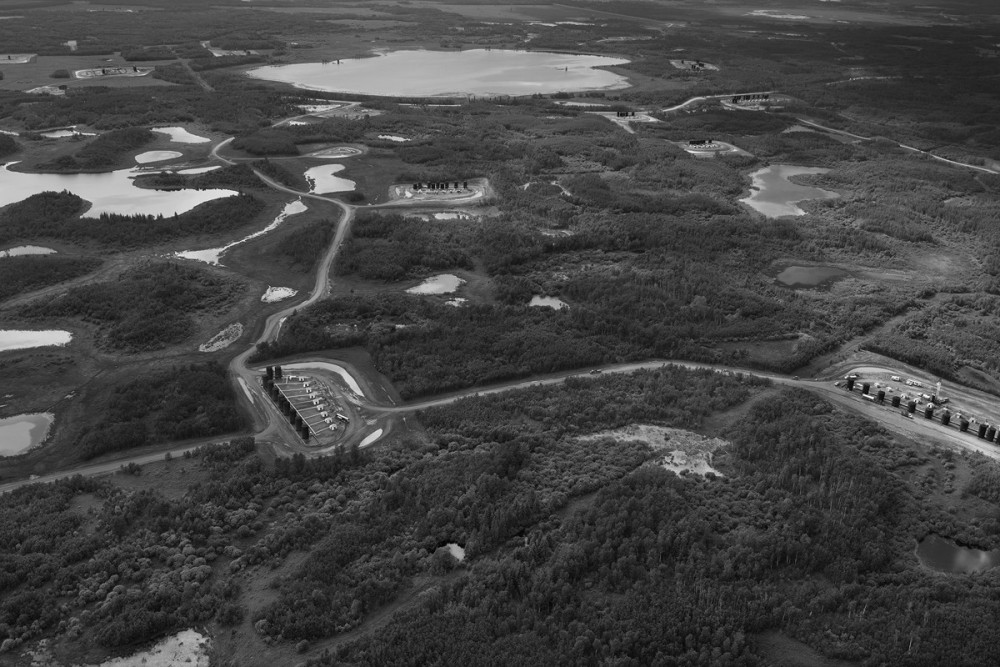
A decolonized future for the oil industry in Saskatchewan “would have to go beyond dialogue,” says Delorme. “What is the strategic plan? And who is making the strategic plan? It’s not your people, but it’s our people. And if we’re making that strategic plan, what is your strategic plan to follow through with that strategic plan?” Delorme sees the need for oversight from Indigenous peoples over the actions of settlers. “And having one token Indian […] doesn’t work, because they [settlers] always dominate and overpower that one person.”
“How do we become self-sustaining First Nations when there’s no room for growth, and the only place there’s growth is to let oil companies come through or near or around because that brings in money?” asks Delorme.
And respecting treaties may not be enough; ultimately, decolonization means giving land back.
As Delorme makes clear, in order to meet the true spirit and intent of treaties, a new SaskOil would have to be a joint project that facilitates genuine sharing of the land and resources between the Crown and sovereign original nations. The massive liabilities associated with properly decommissioning and remediating oil wells should first be recuperated from industry and, second, be borne by the settler public.
And respecting treaties may not be enough; ultimately, decolonization means giving land back. If Saskatchewan’s oil industry were to be socialized and managed with the goal of decolonization, public lands that have been reclaimed from industry must be returned to First Nations.
A new SaskOil
According to a government report, as far back as 1978, SaskOil and other Crown corporations, including SaskPower and SaskEnergy, were mandated to collaborate on energy conservation and the development of renewable energy sources. Four decades later, the province still relies heavily on fossil fuels, has only very recently committed to investing in renewables, and has some of the highest per-capita rates of energy consumption and greenhouse gas emissions in the world. The action promised in the ’70s did not follow.
This won’t be an easy fight: private oil companies have all the PR backing that money can buy, and a chorus of staunch supporters.
The current trajectory of the oil industry isn’t working for decolonization, and it certainly isn’t working for the climate. While socialization can be a first step in wresting control from the corporations that are privately profiting from using a shared resource while despoiling the land, water, and air, it cannot be the endgame. Lands must be returned, and the industry must be wound down. This won’t be an easy fight: private oil companies have all the PR backing that money can buy, and a chorus of staunch supporters. But socializing the oil industry means giving it to the people – and if the will of the people is to restore our relationships with the environment and with each other, it can be done.


